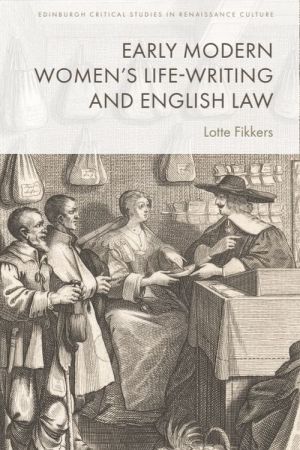
Reconstructs the everyday life of women in the early modern period through the traces they left in the records of English courts of law.
Despite the plethora of early modern life-writing (diaries, (auto)biographies, memoirs), it remains difficult to reconstruct a picture of everyday female experience - as women chose to tell it - from this extant corpus. The vast majority of examples are penned by men; only a handful of texts by early modern women are immediately recognisable as autobiographies and diaries, such as Anne Clifford’s Diaries (1616-19) and Anne Halkett’s ‘True accountt’ (c. 1677/8). Moreover, the few examples we do have are not representative of women’s life stories in general, as there are no known diaries or autobiographies by women below the level of the middle ranks. Early Modern Women’s Life-Writing and English Law shows how legal records form an alternative type of life-writing, especially for women, and that thousands of lives are yet to be uncovered from the legal archives.